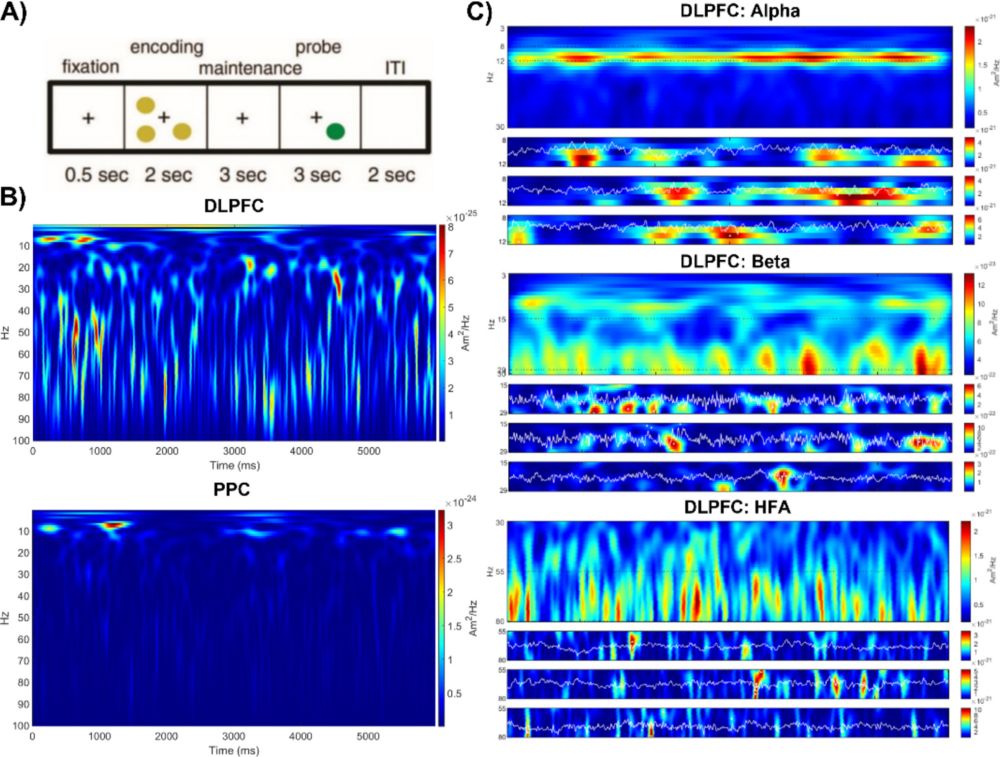
Cognitive neuroscience, executive brain functions, consciousness, and bass guitar. You know, the good stuff.
ekmillerlab.mit.edu
Co-founder, Neuroblox
https://www.neuroblox.ai/
✨In our NeurIPS 2025 Spotlight paper, we introduce a data-driven framework to answer this question using deep learning, nonlinear control, and differential geometry.🧵⬇️

✨In our NeurIPS 2025 Spotlight paper, we introduce a data-driven framework to answer this question using deep learning, nonlinear control, and differential geometry.🧵⬇️
www.neuroblox.ai
A Neuroblox model even made a new discovery!
www.biorxiv.org/content/10.1... (in press, Nat. Comm) #neuroscience

www.neuroblox.ai
A Neuroblox model even made a new discovery!
www.biorxiv.org/content/10.1... (in press, Nat. Comm) #neuroscience
www.cell.com/neuron/abstr...
#neuroscience

www.cell.com/neuron/abstr...
#neuroscience
www.biorxiv.org/content/10.1...
www.biorxiv.org/content/10.1...
link.springer.com/article/10.3...
#neuroscience

link.springer.com/article/10.3...
#neuroscience
www.cell.com/iscience/ful...
#neuroscience

www.cell.com/iscience/ful...
#neuroscience
www.nature.com/articles/s41...
#neuroscience

www.nature.com/articles/s41...
#neuroscience
doi.org/10.1073/pnas...
#neuroscience

doi.org/10.1073/pnas...
#neuroscience
The MIT Consciousness Club seminar
Consciousness Emerges From Neural Dynamics
Earl K. Miller
Zoom link here:
sites.google.com/view/mit-con...

The MIT Consciousness Club seminar
Consciousness Emerges From Neural Dynamics
Earl K. Miller
Zoom link here:
sites.google.com/view/mit-con...

sites.google.com/view/mit-con...
#neuroscience

sites.google.com/view/mit-con...
#neuroscience
Through the MIT Consciousness Club, professors Matthias Michel and Earl Miller are exploring how neurological activity gives rise to human experience.
news.mit.edu/2025/science...
#neuroscience

Through the MIT Consciousness Club, professors Matthias Michel and Earl Miller are exploring how neurological activity gives rise to human experience.
news.mit.edu/2025/science...
#neuroscience
youtu.be/7OFb-NG3jIw
#neuroscience

youtu.be/7OFb-NG3jIw
#neuroscience
Emotional Learning and the Primate Amygdala: From Adaptive Behaviors to Psychopathologies.
www.abstractsonline.com/pp8/#!/21171...

Emotional Learning and the Primate Amygdala: From Adaptive Behaviors to Psychopathologies.
www.abstractsonline.com/pp8/#!/21171...



arxiv.org/abs/2511.03503
#neuroscience

arxiv.org/abs/2511.03503
#neuroscience
doi.org/10.5607/en25...
#neuroscience

doi.org/10.5607/en25...
#neuroscience
doi.org/10.1101/2025...
#neuroscience

doi.org/10.1101/2025...
#neuroscience




